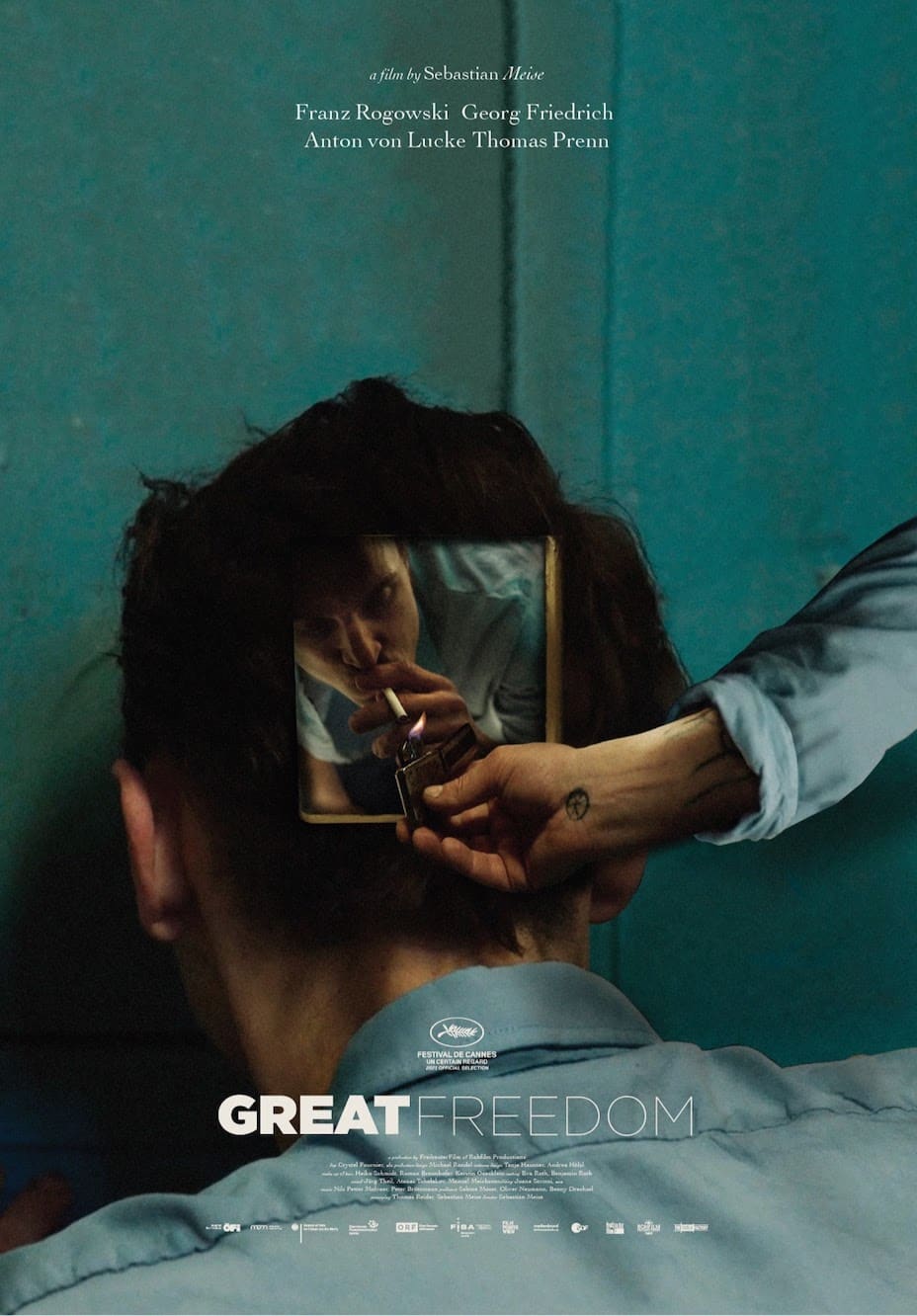
- Starring
- Franz Rogowski, Georg Friedrich, Anton von Lucke
- Writers
- Sebastian Meise, Thomas Reider
- Director
- Sebastian Meise
- Rating
- n/a
- Running Time
- 116 minutes
- Release Date
- n/a
Overall Score
Rating Summary
This will be one of many reviews during this year’s AFI Fest, to keep up with our latest coverage, click here.
Great Freedom (German: Große Freiheit) is an Austrian drama film directed by Sebastian Meise which has also been selected as the Austrian entry for the Best International Feature Film at the 94th Academy Awards. Set decades following World War II, the film follows a man named Hans Hoffman (Rogowski) who was sentenced to 24 months for being gay and developing a relationship with his cellmate Viktor (Friedrich). Paragraph 175 was a provision of the German Criminal Code from May 15th, 1871 to March 10th, 1994 which made homosexual acts between males a crime.
Early on, it became clear that this wasn’t Hans’ first time in prison. Once he returned, he immediately recognizes Viktor from their earlier prison stint. From there, the film flashes back to develop the relationship between Hans and Viktor where Viktor was initially homophobic, softened over time as the latter learned more about the other as the story saw the two men bond over their shared captivity. Meanwhile, Great Freedom also weaves more plot threads touching the immediate postwar period and the events of 1969 where Paragraph 175 was abolished.
The acting throughout Great Freedom was great across the board with Rogowski standing out as Hans. Meise does an exquisite job at employing personal, political and sensual storytelling as it perfectly navigates an emotional tightrope as it works to build the film world while the editing throughout the movie was brilliant. In the end, the film’s characters and their grasp of emotion was well done as audiences will surely connect with them on an emotional level as they gravitate towards the actors and their amazing performances.
The title of Great Freedom is ironic in a sense as it shows how gay men like Hans were caught in an endless loop of social, moral and judicial persecution where their collective freedom was essentially only possible while in confinement.
still courtesy of MUBI
Follow me on Twitter.
If you liked this, please read our other reviews here and don’t forget to follow us on Twitter or Instagram or like us on Facebook.
Discover more from
Subscribe to get the latest posts sent to your email.

